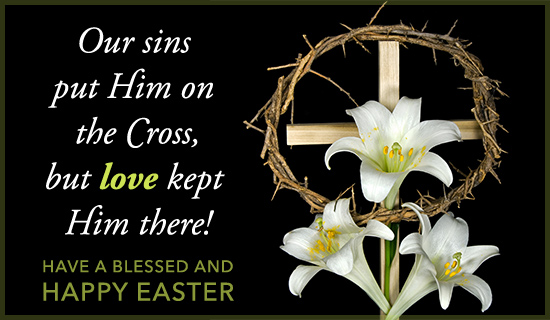
"On a Hill Far Away" - Institute for Creation Research, Days of Praise, April 2, 2015; http://www.icr.org/article/8569
“And he bearing his cross went forth into a place called the place of a skull, which is called in the Hebrew Golgotha.” (John 19:17)
The Hebrew word golgotha and the Latin word calvarie actually mean “skull.” The Romans had selected a place of execution outside Jerusalem (Hebrews 13:12) but near the city (John 19:20), near a public highway (Matthew 27:39), and easily visible from some distance away (Mark 15:40). This has led many to speculate that it was on a hill, as in the first verse of the well-loved hymn “The Old Rugged Cross.”
On a hill far away stood an old rugged cross,
The emblem of suffering and shame;
And I love that old cross where the dearest and best
For a world of lost sinners was slain.
Truly His cross involved great suffering: “Christ also suffered for us. . . . Who his own self bore our sins in his own body on the tree, that we, being dead to sins, should live unto righteousness: by whose stripes ye were healed” (1 Peter 2:21, 24). Likewise, it involved great shame: “Christ hath redeemed us from the curse of the law, being made a curse for us: for it is written, Cursed is every one that hangeth on a tree” (Galatians 3:13). But this suffering and shame was not in vain, for as we see in both passages above, it was on our behalf. “Greater love hath no man than this, that a man lay down his life for his friends” (John 15:13).
However, God’s dearest and best, indeed God’s “only begotten Son” (John 3:16), was slain, not so much for “friends,” but for enemies! A world of lost sinners put Him on the cross. “But God commendeth his love toward us, in that, while we were yet sinners, Christ died for us . . . when we were enemies, we were reconciled to God by the death of his Son” (Romans 5:8, 10). So I’ll cherish the old rugged cross. JDM
[bold, italics, and colored emphasis mine]
"Dark Calvary" - by John D. Morris, Institute for Creation Research, Days of Praise, April 3, 2015; http://www.icr.org/article/8570
“Now from the sixth hour there was darkness over all the land unto the ninth hour.” (Matthew 27:45)
The second verse of the grand old hymn “The Old Rugged Cross” contains much truth, rich and deep.
Oh, that old rugged cross, so despised by the world,
Has a wondrous attraction for me;
For the dear Lamb of God left His glory above
To bear it to dark Calvary.
The world despises the cross, and the One on the cross. “He is despised and rejected of men; a man of sorrows, and acquainted with grief: and we hid as it were our faces from him; he was despised, and we esteemed him not” (Isaiah 53:3). But yet, even in His bloodied and broken form, there is a wondrous attraction, for “surely he hath borne our griefs, and carried our sorrows: . . . he was wounded for our transgressions, he was bruised for our iniquities: the chastisement of our peace was upon him; and with his stripes we are healed” (vv. 4-5).
His death substituted for ours. He was the sacrificial “Lamb of God, which taketh away the sin of the world” (John 1:29). This Lamb is none other than God the Son, who willingly “took upon him the form of a servant, and was made in the likeness of men: . . . and became obedient unto death, even the death of the cross” (Philippians 2:7-8). Remarkably, even God the Father “despised” Him as He hung on the cross, for God is holy, and for our sakes had “made him to be sin for us, who knew no sin; that we might be made the righteousness of God in him” (2 Corinthians 5:21). The apex of Christ’s suffering came, as we see in our text, when God the Father separated Himself from His beloved Son, “forsaking” (v. 46) Christ to suffer for three hours the awful pangs of hell which we deserved. So I’ll cherish the old rugged cross. JDM
[bold italics, and colored emphasis mine]






No comments:
Post a Comment